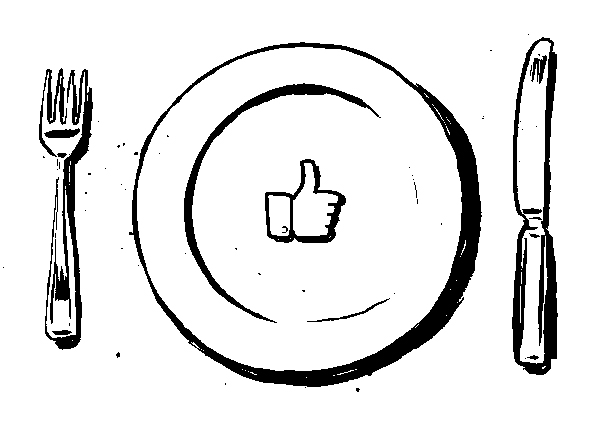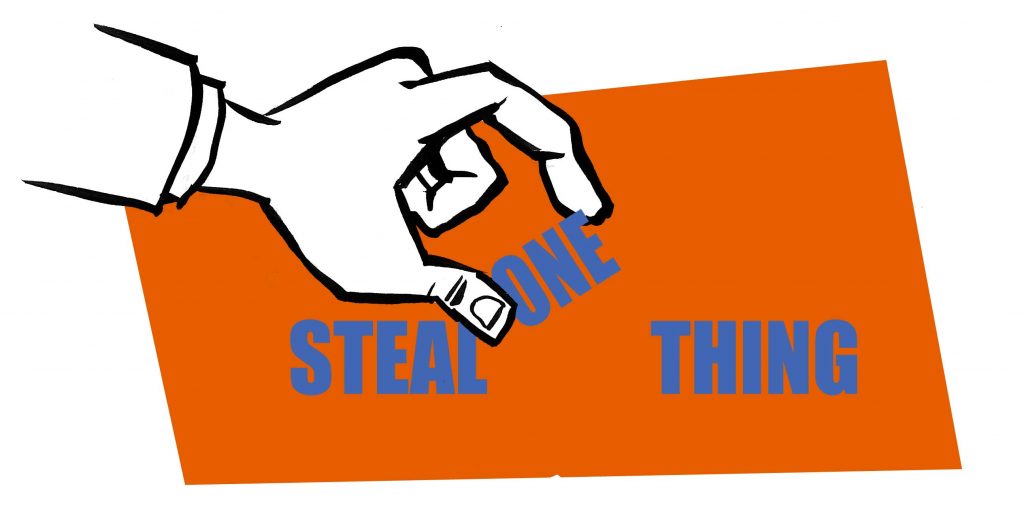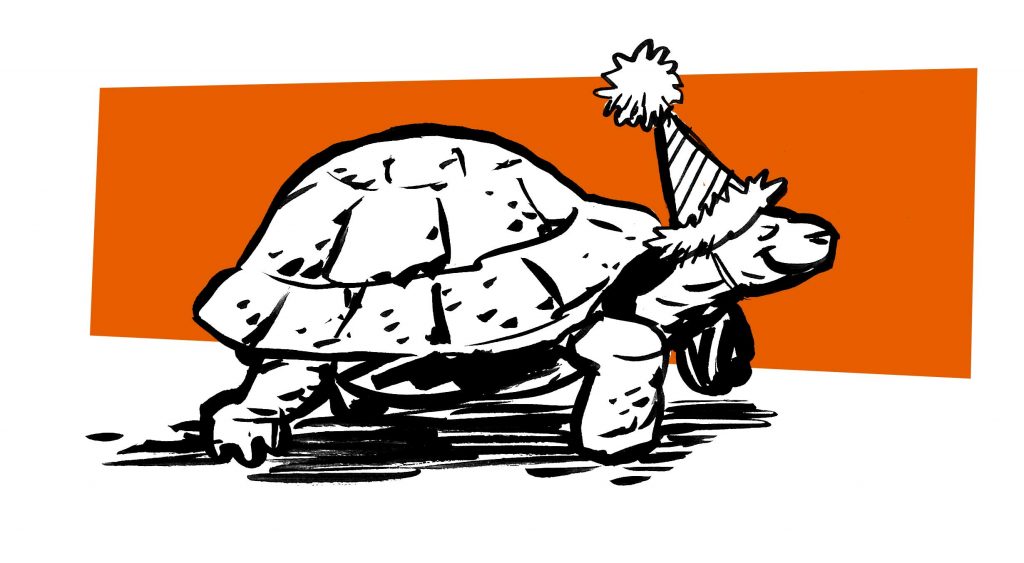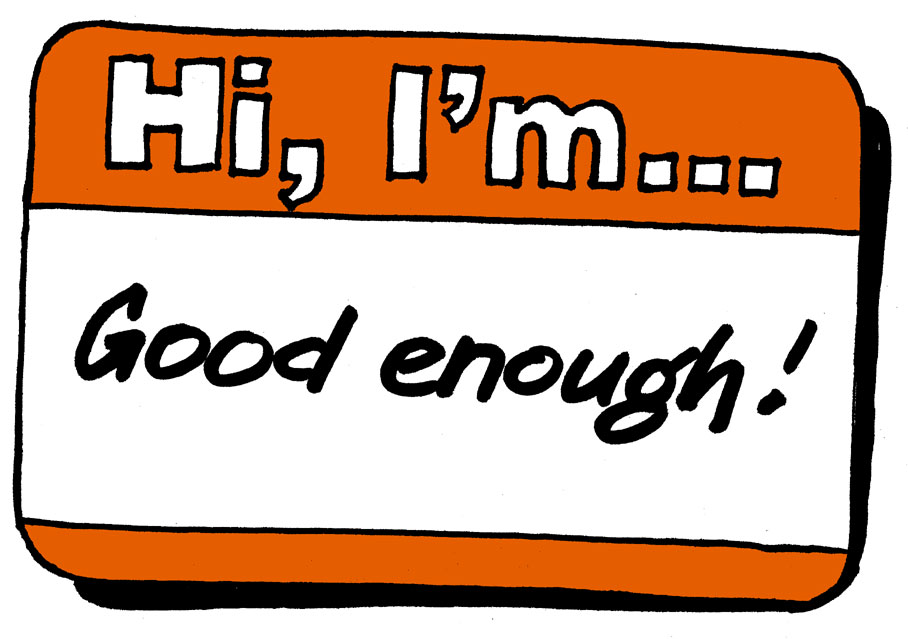Three Books All Creatives Should Read
In this video I give three book recommendations that might seem kind of left field. Nevertheless all three have had a huge impact on me and how I see myself as an artist – and as a human!
Here are direct affiliate links to all three books on Amazon:
The War of Art: Break Through the Blocks and Win Your Inner Creative Battles, by Steven Pressfield
The Dip: A Little Book That Teaches You When to Quit (and When to Stick), by Seth Godin
The Subtle Art of Not Giving a F*ck: A Counterintuitive Approach to Living a Good Life, by Mark Manson
Is the Free Content Model Hurting Artists?
 Give away your best stuff for free and people will become fans, and a percentage of those fans will end up paying you. But is this really true? Can you put the genie back in the bottle?
Give away your best stuff for free and people will become fans, and a percentage of those fans will end up paying you. But is this really true? Can you put the genie back in the bottle?
We all saw how it happened with the traditional media. Whenever a news site put up a pay wall, we just skipped to the next – free – news source. When customers get used to getting content for free it’s hard to charge money for the same content later.
When I started this site, a friend of mine advised against charging money for it. People can find free comics tutorials on YouTube, why would they pay for it? Nevertheless, I have people paying for access to my premium program every month. People I am sure would NOT be paying for access, if I hadn’t already built trust with them through all the free content here and on the newsletter.
And speaking of building trust, have you noticed there aren’t any ads on this site? That’s because I made a conscious decision not to try and cash in by putting blinking banners and sponsored content here. This is my site and my message, end of story. The reason I can keep the site up and running is because of the awesome people who sign up for premium access.
If you’re a semi-pro artist I’m sure you use stuff like Instagram to promote your art. Some artists are wary of putting their content on these platforms as it might get stolen or copied. And while it certainly happens once in a while, I wouldn’t worry about it too much. You can post work-in-progress or detail shots rather than finished artwork and your followers will be just as happy. Besides, the more loyal fans you have out there, the bigger the chance that they will let you know if your work shows up in weird places.
A lot of web artists are having success with Patreon or other micro funding sources and others again use their free online comic as promotion for a printed copy. It turns out that a lot of people are actually willing to pay for something you already gave away for free, because now they have a relationship with you and want to support the work you do. The pay-first-get-content-later model has been turned on it’s head and artists need to navigate this new world. But it seems a lot more people are finding ways to make money on their art without being chosen by the gatekeepers previously needed to connect with an audience. There has never been a better time to create your own job, even though it may be a patchwork of tiny income streams.
That said, I sometimes worry that by giving stuff away for free, you could be attracting the wrong audience. I mean, if people sign up to get something for free doesn’t mean they will ever pay you a dime. You could argue that the reason they go for your free stuff is because they are freeloaders. While posting our art on Instagram may very well help build an audience, it could also have a downside. Are we not just training people that art is something that should be available at your fingertips for free?
I realize this post doesn’t provide many answers. If there’s one thing I want you to take away, it is this: Be mindful of how and why you give away free content. Focusing your efforts on getting followers and likes on Facebook is not a sure-fire way to pay the bills. And unless you have a buy-button on your site (or a sign-up or support-my-Patreon button) you could very well be running in circles, trying to fill a bucket that has a hole in the bottom. You need to be able to capture some of those visitors, convert some of those likes and clicks into cash. Maybe not right now, but some day when you have a favor to ask, a book to launch or a Kickstarter that needs support. We all need to eat. And likes aren’t that nourishing in the long run.
Steal With Intention
 In his great book Steal like an artist Austin Kleon recommends stealing from various sources in order to create your own unique artistic expression. I wholly endorse this message! But how do I practically implement this advice?
In his great book Steal like an artist Austin Kleon recommends stealing from various sources in order to create your own unique artistic expression. I wholly endorse this message! But how do I practically implement this advice?
I recently tried out another form of stealing. I’m writing a YA novel in between other gigs and interruptions and often find it hard to get back in the groove, when I finally have the time to work on my story. It’s easy to feel stuck or disconnected from the story.
So I started stealing with intention.
Every time I watch a movie, read a comic or a chapter in the kids book I’m reading aloud to my daughter, I look for one thing I can lift for my own story. It could be anything; a particular conflict (mom vs. daughter), piece of clothing (someone wearing a Nirvana t-shirt), an activity (building a treehouse or playing cards), a tic or a trait. I’ll ask myself what this could be in my story. And like the kids in the story building a tree house out of old planks, something new will start to take shape in my story, even though some of the raw materials is from somewhere else. It also keeps my mind sharp and awake, not just consuming a tv-show or a museum exhibition. I’m looking for something to steal.
You too can try setting this as a sort of dogma rule for yourself, to always look for one thing that you can implement. Treat it like a game! If you can find just one thing to steal from a movie, it can be a bad movie and you still win.
—
Found this article inspiring or helpful? Why not steal share it with a friend?
Bonus Video: Lucy Bellwood and her 100 Demons
I first met Lucy at Periscope Studios in Portland, OR, where I had the great privilege to work from a guest table for a few weeks back in 2014 (you can hear the podcast episode I did with Steve Lieber here). Even then she struck me with her wisdom, despite her young age. I never managed to get a real sit-down with Lucy back then but when I saw her new project 100 Demon Dialogues I jumped at the opportunity to chat with her about dealing with your inner demons as an artist, tabling at cons and having a career as a creative freelancer.
Check it out here and please share with your self-deprecating artist friends!
Links mentioned in this video:
Are You Good Enough for a Career in Comics?
We all look for approval, as people as well as artists. We want to be told we are great, that everything will work out for us. The truth is, no one can really give us that validation.
We might get lucky and meet some peers who can give us guidance, tell us where we need to improve or tell us not to worry so much. But we all worry. And I bet you we all ask the same question: Am I good enough? Do I have what it takes to make it as a comics artist?
No one can tell you for certain, if you have what it takes. A portfolio review only tells you if you have the basic talent for drawing. What goes on inside of you is far more important. Are you willing to put in the time and effort to get to the level you want? To confront your own shortcomings and tackle them head on? Are you prepared for the insecure lifestyle of a comic book artist? The solitude? The long hours? The lack of money and lack of respect from your friends and family?
Are you ready for critizism, fair and unfair? Can you muster up the guts to consistently put yourself out there and be judged? How do you handle taking notes and being told what to do? Do you freeze up when you have to perform under less-than-optimal circumstances? How well do you work under the pressure of a deadline? Do you get anything done if there’s NO deadline, or do you end up wasting your days playing World of Warcraft? Can you forgive yourself for producing less-than-perfect art? Do you endlessly beat yourself up if you’re not productive enough, good enough or succesful enough?
What does “making it” even mean for you?
Have you set a specific and measurable goal, and if not, how will you know if you get there? And have you set a time limit for when you want to have “made it”, knowing that it will probably take years longer than you expect?
And guess what – no one has ever “made it” in comics. Because you’re only as good as your last job. Because even the artist you admire the most judge their own success in a totally different way than you do. Because no matter how succesful you are, you still strive for more. There’s always room for improvement.
All this may sound like I’m trying to get you to give up, which is not at all true. The only thing I want you to give up, is asking the wrong questions. Whether you are good enough, time will tell. Time, effort, courage, persistance.
And you know when you are “making it”?
When you are making the most of the skills you have.
 Hey, it’s a new year! Maybe you made a resolution that has to do with your creative craft, like write the script for your graphic novel or draw a page a day. A big goal, something to strive for! That’s the way to go, right?
Hey, it’s a new year! Maybe you made a resolution that has to do with your creative craft, like write the script for your graphic novel or draw a page a day. A big goal, something to strive for! That’s the way to go, right?